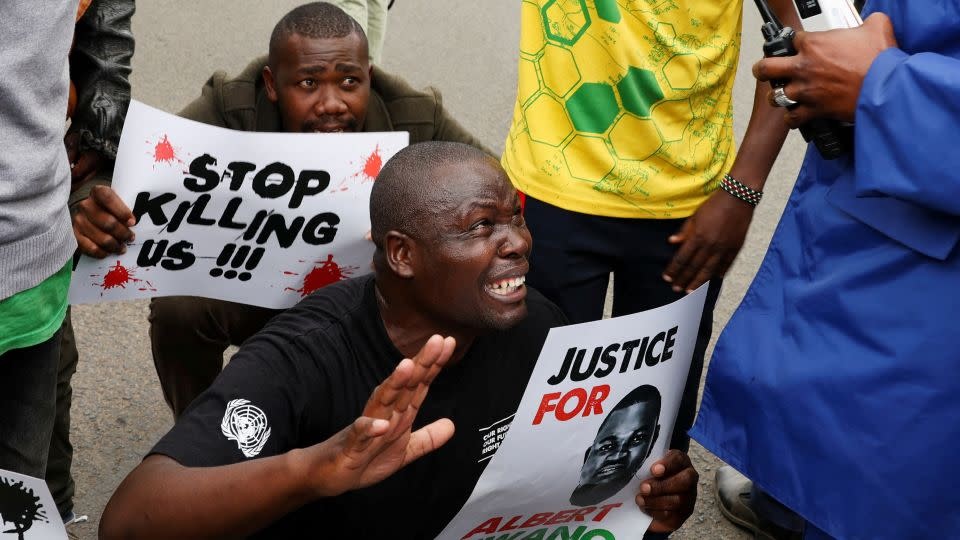A Kenyan police officer on Thursday, June 13, 2025, appeared in court over the death of a teacher who died while in police custody, a case that has sparked national outrage, protests, and renewed focus on police conduct in the country.
Constable James Mukhwana is the first officer arrested over the death of 31-year-old Albert Ojwang, a high school teacher who was taken into custody on 6 June in Homa Bay County, western Kenya.
Ojwang had posted critical comments about a senior police officer on social media.
After his arrest, he was transported nearly 350 kilometers (about 200 miles) to Nairobi, where he died two days later.
According to the Independent Policing Oversight Authority (IPOA), Mukhwana was the officer assigned to guard the cell at Nairobi’s central police station the night Ojwang was detained.
IPOA presented Mukhwana before a court in Nairobi on Friday, requesting a 21-day detention period to complete investigations.
The court is expected to make a ruling on the request by 20 June.
This court appearance marks a significant step in a case that has unfolded rapidly and drawn considerable public attention.
Initially, police claimed that Ojwang died after hitting his head against the wall of his cell.
However, an autopsy contradicted this, revealing injuries consistent with physical assault.
Dr. Bernard Midia, who led the postmortem examination, stated that Ojwang suffered head trauma, neck compression, and multiple soft tissue injuries.
“These injuries were clearly caused by external force,” Midia explained.
In response to public outcry, Inspector General of Police Douglas Kanja issued an apology on Wednesday, retracting the initial police account and acknowledging it as “misinformation.”
The IPOA’s investigation now includes not only the officers present at the Nairobi station but also those involved in Ojwang’s arrest and transfer from Homa Bay.
On Tuesday, police spokesperson Michael Muchiri announced that five officers had been suspended from active duty to facilitate a thorough and transparent inquiry.
Ojwang’s death has triggered widespread anger both online and on the streets.
Protests erupted in Nairobi, with demonstrators calling for accountability and demanding the resignation of Deputy Inspector General Eliud Kipkoech Lagat—the officer Ojwang had criticized prior to his arrest.
As demonstrations escalated, police used teargas to disperse crowds on Monday and again on Thursday, when protesters set fire to several vehicles.
These events have reignited concerns over police brutality and misconduct in Kenya, where convictions of officers for such offenses are rare.
This case comes just under a year after a wave of nationwide protests that led to numerous deaths, disappearances, and alleged abductions, raising serious concerns about systemic abuses by law enforcement.
President William Ruto weighed in earlier this week, stating unequivocally that Ojwang died “at the hands of the police.”
He called the incident “heartbreaking and unacceptable,” and directed the National Police Service to fully cooperate with IPOA investigators.
Ruto condemned both the actions and the failures that may have contributed to the teacher’s death, saying, “I strongly condemn the actions and omissions, including any negligence or outright criminality.”
Although President Ruto has previously pledged to end extrajudicial killings by security forces, his administration continues to face criticism from human rights groups.
Activists have accused the government not only of failing to stop these abuses but also of attempting to hide them.
Ojwang’s death has become a flashpoint in Kenya’s long-standing struggle against police violence.
Citizens and civil society groups are demanding justice, reforms, and greater accountability from law enforcement.



